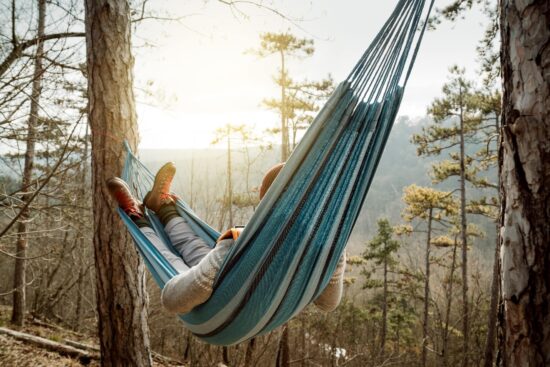In our fast-paced world, where productivity is celebrated and busyness often equates to success, rest and leisure can feel like luxuries rather than necessities. Yet, scientific research and real-world experiences consistently demonstrate the vital role leisure plays in improving overall wellness. Kevin Morgan of Pittsford NY emphasizes that understanding the importance of rest and how to incorporate it effectively into our lives can lead to better physical, mental, and emotional health.
Why Rest Matters
Rest is not simply the absence of activity; it’s a proactive choice to recharge and restore the body and mind. Without adequate rest, we risk burnout, decreased productivity, and a host of physical ailments. Chronic stress, often exacerbated by a lack of downtime, has been linked to cardiovascular diseases, weakened immune systems, and mental health challenges like anxiety and depression.
Leisure activities—whether as simple as reading a book or as engaging as traveling—provide the mental and emotional respite necessary to counteract these stressors. The benefits of leisure extend beyond immediate relaxation, contributing to long-term wellness.
The Science of Rest and Its Benefits
1. Physical Health
Engaging in leisure activities can significantly impact physical health. Active forms of leisure, such as walking, yoga, or sports, improve cardiovascular health, enhance flexibility, and strengthen muscles. Even passive leisure activities like meditation or enjoying a hobby can lower blood pressure and reduce the levels of cortisol, the stress hormone.
Additionally, regular rest contributes to improved sleep quality. According to studies by the National Sleep Foundation, engaging in leisure activities before bed—like reading or listening to soothing music—helps the brain transition into a state conducive to restorative sleep.
2. Mental Clarity
Leisure provides the brain with a much-needed break from constant stimulation. Activities that encourage mindfulness, such as painting or gardening, allow individuals to focus on the present moment, reducing mental clutter and enhancing concentration.
Research from the American Psychological Association suggests that leisure can increase cognitive flexibility, problem-solving abilities, and creativity. By stepping away from work or stressful environments, individuals often return with fresh perspectives and renewed focus.
3. Emotional Well-Being
Leisure activities foster a sense of joy and fulfillment, directly impacting emotional health. Shared leisure experiences—such as playing games with family or attending a social event—strengthen relationships and create lasting memories, which are foundational for emotional resilience.
Furthermore, leisure often serves as a tool for self-discovery. Whether through solo travel, artistic endeavors, or simply taking time to reflect, rest enables individuals to better understand their passions, values, and goals.
Different Types of Rest: Finding What Works for You
Not all rest looks the same. Understanding the different forms of rest can help individuals tailor leisure activities to their specific needs.
1. Physical Rest
This type of rest focuses on the body’s need for recovery. It includes both passive rest, like sleep and napping, and active recovery, such as stretching or low-impact exercises.
2. Mental Rest
For those constantly engaged in mentally taxing work, activities like meditation, journaling, or engaging in a non-work-related hobby can provide relief.
3. Social Rest
Introverts, in particular, may find themselves needing time away from social interactions to recharge. Quiet alone time, reading, or enjoying nature can be rejuvenating.
4. Creative Rest
For individuals who rely heavily on creativity, stepping away from their craft and engaging in unrelated leisure activities—such as attending a concert or watching a movie—can spark renewed inspiration.
Overcoming Barriers to Rest
While the benefits of leisure are clear, many people struggle to incorporate it into their lives. Common barriers include guilt, lack of time, and societal pressures to remain busy.
1. Guilt Over Resting
A culture that equates rest with laziness can make individuals feel unproductive when taking time off. Reframing rest as an investment in health and productivity can help combat this mindset.
2. Lack of Time
For those juggling work, family, and other responsibilities, leisure can feel like an unattainable luxury. However, small changes—like setting aside 15 minutes daily for a relaxing activity—can build the habit of prioritizing rest.
3. Social Expectations
Societal norms that prioritize constant activity can make it challenging to step back. Normalizing rest within personal networks by openly discussing its benefits can help shift this perspective.
Practical Ways to Incorporate Rest
Incorporating rest into daily life doesn’t require drastic changes. Simple strategies include:
- Scheduling Leisure Time: Treat rest as an important appointment. Block time in your calendar for activities you enjoy, whether it’s yoga, reading, or taking a walk.
- Exploring New Hobbies: Trying something new, like painting or learning a musical instrument, keeps the mind engaged and breaks the monotony of routine.
- Unplugging from Technology: Taking regular breaks from screens—especially social media—can reduce mental fatigue and create space for more meaningful activities.
- Prioritizing Sleep Hygiene: A consistent sleep schedule, paired with a relaxing pre-sleep routine, ensures the body gets the physical rest it needs.
The Ripple Effect of Rest
The benefits of leisure extend far beyond individual wellness. Rested and fulfilled individuals contribute to healthier relationships, more productive workplaces, and vibrant communities. By embracing the art of rest, we not only improve our own lives but also create a positive ripple effect for those around us.
Rest and leisure are not indulgences—they are necessities for a balanced and healthy life. By understanding the importance of different types of rest and overcoming the barriers to leisure, we can unlock the profound benefits of relaxation. In a world that often glorifies hustle, learning to rest effectively is an art worth mastering. So, take a deep breath, set aside time for yourself, and rediscover the power of leisure to enhance your overall wellness.
